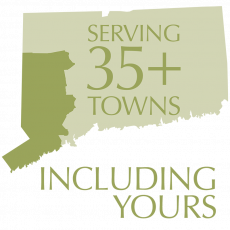Virtual Wellness Fair - Sugar Fix


RVNAhealth understands nutrition. Our registered dietitians and nutrition educators can help you get the most out of your eating — for health and healing, enjoyment and energy — to feel your best. RVNAhealth offers individualized nutrition counseling for specific health goals; nutrition education classes on a range of topics; and medical nutrition therapy for those with chronic conditions, taking daily medications, or who have very specific medical needs.
A common topic that comes up when speaking about nutrition is sugar. The average American consumes 77g sugar/day.1 That’s about 19.25 teaspoons/308 calories/day and 60 pounds of sugar/year.2 While experts agree that some added sugar in the diet is fine for most people, excessive intake of sugar is linked to long term health consequences such as tooth decay, Type 2 diabetes and heart disease. To read some of our commonly asked questions regarding sugar, continue below.
Click here to learn more about RVNAhealth Nutrition Services.
What are added sugars?
Added sugars are sugars and syrups that are added to foods or beverages when they are processed or prepared. Naturally occurring sugars, such as fructose in fruits and vegetables and lactose in milk, are not added sugars.
Added sugars on food labels appear as many different names. Examples include:
- Honey
- Molasses
- Corn Sweeteners
- Sugar (raw sugar, brown sugar, cane sugar, beet sugar, coconut sugar, dextrose, fructose, glucose, invert sugar, lactose, maltose, malt sugar, trehalose, turbinado, sucrose, galactose)
- Syrup (high fructose corn syrup, malt syrup, crystalline fructose, maple syrup)
How much sugar is ok?
Public health organizations worldwide have made consistent recommendations for daily sugar intake. The American Heart Association (AHA) recommends no more than 6 teaspoons (25 grams) of added sugar per day for women and 9 teaspoons (38 grams) for men.3 The AHA limits for children age 2-18 is 6 teaspoons or less than 25g added sugar/day.4 To put that into perspective, one 12oz can of soda contains 33g/132 calories from sugar, a 5.3oz serving of Chobani Flip yogurt (almond coco loco) has 14g of added sugar, and 1 tablespoon of ketchup has 4g/1 teaspoon of sugar of added sugar.
The World Health Organization recommends that no more than 10% of an adult’s calories – and ideally less than 5% – should come from added sugar or from natural sugars such as honey, syrups and fruit juice.5 For a 2,000-calorie diet, 5% would be 25 grams.
How to Minimize Sugars in Your Diet
- Remember that sugar has many name (see list above). READ LABELS!
- Be wary if a packaged food contains sugar in the first 3 ingredients.
- Limit packaged food that contains more than one type of sugar.
- Be aware that other high-sugar foods often labeled healthy fall into the same category. These include agave, honey, organic cane sugar and coconut sugar.
- Low-fat or diet foods that have had the fat removed from them are often very high in sugar.
- Drink water instead of soda or juices and don’t add sugar to your coffee or tea.
- Limit sugar in recipes; try flavorings like cinnamon, nutmeg, almond extract, vanilla, ginger or lemon.
- Satisfy your sweet tooth with a piece of fresh fruit. You can even BBQ fruits such as mango, pineapple and peach to bring out their sweetness naturally.
Enjoying an occasional sweet treat is fun and delicious. Just make sure that you understand the sugar content of the foods that you are consuming so that you can make an informed decision about where and when you enjoy a sweet treat.
For more information visit. . . https://health.gov/sites/default/files/2019-10/DGA_Cut-Down-On-Added-Sugars.pdf
Sources:
https://www.heart.org/en/healthy-living/healthy-eating/eat-smart/sugar/how-much-sugar-is-too-much
https://www.heart.org/en/healthy-living/healthy-eating/eat-smart/sugar/how-much-sugar-is-too-much
https://www.heart.org/en/healthy-living/healthy-eating/eat-smart/sugar/added-sugars
https://www.heart.org/en/healthy-living/healthy-eating/eat-smart/sugar/sugar-recommendation-healthy-kids-and-teens-infographic
https://www.who.int/mediacentre/news/releases/2015/sugar-guideline/en/


